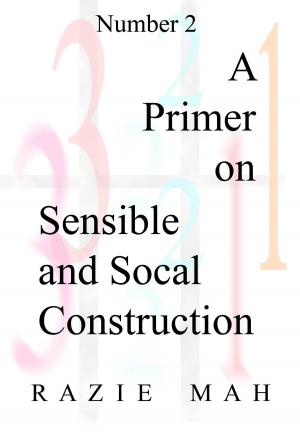Comments on Daniel Novotny’s Book (2013) Ens Rationis from Suarez to Caramuel
Nonfiction, Reference & Language, Education & Teaching, Home Schooling, Religion & Spirituality, Philosophy, Religious| Author: | Razie Mah | ISBN: | 9781942824169 |
| Publisher: | Razie Mah | Publication: | April 23, 2016 |
| Imprint: | Smashwords Edition | Language: | English |
| Author: | Razie Mah |
| ISBN: | 9781942824169 |
| Publisher: | Razie Mah |
| Publication: | April 23, 2016 |
| Imprint: | Smashwords Edition |
| Language: | English |
Daniel Novotny aims to demonstrate that the Baroque scholastics should no longer be ignored. This happens to also be the thesis of another philosopher, John Deely in a separate book, New Beginnings: Early Modern Philosophy and Postmodern Thought (1994).
In these comments on Novotny’s text, the category-based nested form is used to model the ideas of the Baroque schoolmen. The models clarify the way of abstraction practiced by our current Lebenswelt in contrast to the Lebenswelt that we evolved in. They also re-articulate Novotny’s narrative, thereby accounting for the various twists and turns in the development (and abandonment) of ens rationis in the early decades of the Age of Ideas.
These comments, along with Novotny’s excellent text constitute a home-schooling course at the high school and college levels. John Deely’s book supplements this course. The title of the course is “Implicit and Explicit Abstraction”.
Daniel Novotny aims to demonstrate that the Baroque scholastics should no longer be ignored. This happens to also be the thesis of another philosopher, John Deely in a separate book, New Beginnings: Early Modern Philosophy and Postmodern Thought (1994).
In these comments on Novotny’s text, the category-based nested form is used to model the ideas of the Baroque schoolmen. The models clarify the way of abstraction practiced by our current Lebenswelt in contrast to the Lebenswelt that we evolved in. They also re-articulate Novotny’s narrative, thereby accounting for the various twists and turns in the development (and abandonment) of ens rationis in the early decades of the Age of Ideas.
These comments, along with Novotny’s excellent text constitute a home-schooling course at the high school and college levels. John Deely’s book supplements this course. The title of the course is “Implicit and Explicit Abstraction”.















